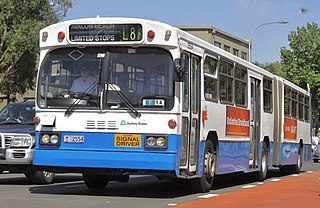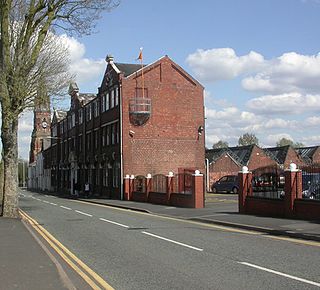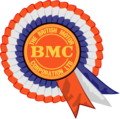
Jaguar is the luxury vehicle brand of Jaguar Land Rover, a British multinational car manufacturer with its headquarters in Whitley, Coventry, England. Jaguar Cars was the company that was responsible for the production of Jaguar cars until its operations were fully merged with those of Land Rover to form Jaguar Land Rover on 1 January 2013.

Morris Motors Limited was a British privately owned motor vehicle manufacturing company formed in 1919 to take over the assets of William Morris's WRM Motors Limited and continue production of the same vehicles. By 1926 its production represented 42 per cent of British car manufacture — a remarkable expansion rate attributed to William Morris's practice of buying in major as well as minor components and assembling them in his own factory. Self-financing through his enormous profits Morris did borrow some money from the public in 1926 and later shared some of Morris Motors' ownership with the public in 1936 when the new capital was used by Morris Motors to buy many of his other privately held businesses.
The automotive industry in the United Kingdom is now best known for premium and sports car marques including Aston Martin, Bentley, Caterham Cars, Daimler, Jaguar, Lagonda, Land Rover, Lister Cars, Lotus, McLaren, MG, Mini, Morgan and Rolls-Royce. Volume car manufacturers with a major presence in the UK include Honda, Nissan, Toyota and Vauxhall Motors. Commercial vehicle manufacturers active in the UK include Alexander Dennis, Ford, IBC Vehicles, Leyland Trucks and London EV Company.

The Austin Motor Company Limited was a British manufacturer of motor vehicles, founded in 1905 by Herbert Austin. In 1952 it was merged with Morris Motors Limited in the new holding company British Motor Corporation (BMC) Limited, keeping its separate identity. The marque Austin was used until 1987. The trademark is currently owned by SAIC after being transferred from bankrupt subsidiary Nanjing Automotive which had acquired it with MG Rover Group in July 2005.

British Leyland was an automotive engineering and manufacturing conglomerate formed in the United Kingdom in 1968 as British Leyland Motor Corporation Ltd (BLMC), following the merger of Leyland Motors and British Motor Holdings. It was partly nationalised in 1975, when the UK government created a holding company called British Leyland, later BL, in 1978. It incorporated much of the British-owned motor vehicle industry, which constituted 40 percent of the UK car market, with roots going back to 1895.
British Motor Holdings Limited (BMH) was a British vehicle manufacturing company known until 14 December 1966 as British Motor Corporation Limited (BMC). BMH was created as a holding company following the BMC's takeover of both Jaguar Cars and the Pressed Steel Company in that year.
Leyland Motors Limited was a British vehicle manufacturer of lorries, buses and trolleybuses. The company diversified into car manufacturing with its acquisitions of Triumph and Rover in 1960 and 1967, respectively. It gave its name to the British Leyland Motor Corporation, formed when it merged with British Motor Holdings in 1968, to become British Leyland after being nationalised. British Leyland later changed its name to simply BL, then in 1986 to Rover Group.

Innocenti was an Italian machinery works originally established by Ferdinando Innocenti in 1920. Over the years they produced Lambretta scooters as well as a range of automobiles, mainly of British Leyland origins. The brand was retired in 1996, six years after a takeover by Fiat.
Leyland Trucks is a medium and heavy duty truck manufacturer in based in Leyland, England. It can trace its origins back to the original Leyland Motors, which was founded in 1896, and subsequently evolved into British Leyland. After British Leyland became the Rover Group in 1986, the truck business was spun out and merged with DAF Trucks to form DAF NV, operating as Leyland DAF in the United Kingdom.

The Authi car company of Pamplona, Spain, was founded in 1965 as a result of a collaboration between BMC and NMQ.

BMC is one of the largest commercial vehicle manufacturers in Turkey. Its products include buses, trucks, and military vehicles.

Leyland Bus was a British bus and train manufacturer. It emerged from the Rover Group as a management buyout of the bus business. It was subsequently acquired by Volvo Buses in 1988 and the Leyland name disappeared in 1993.
Henry George (Harry) Webster, CBE was a British automotive engineer who inspired the creation of iconic Triumph cars throughout the 1950s and 1960s.
Lieutenant-Colonel Donald Gresham Stokes, Baron Stokes was an English industrialist. He was the head of British Leyland Motor Corporation Ltd (BL) from 1968 to 1975.
British Motor Corporation (Australia) was a motor manufacturing company formed in Australia in 1954 by the merger of the Austin Motor Company (Australia) and Nuffield (Australia) Pty Ltd. This followed the merger in 1952 of the Austin Motor Company and the Nuffield Group in the United Kingdom to form the British Motor Corporation. Following further corporate changes in the UK in the late 1960s, BMC Australia was absorbed into the newly established British Leyland Motor Corporation of Australia, the name of which became Leyland Motor Corporation of Australia in 1972, and then JRA Limited in March 1983.

Plant Oxford located in Cowley, southeast Oxford, England, is owned by German carmaker BMW, and is the central assembly facility for the Mini range of cars. The plant forms the Mini production triangle along with Plant Hams Hall where engines are manufactured and Plant Swindon where body pressings and sub-assemblies are built.

Pressed Metal Corporation was an Australian automotive body building and assembly operation based in New South Wales.

Sunbeam Commercial Vehicles was a commercial vehicle manufacturing offshoot of the Wolverhampton based Sunbeam Motor Car Company when it was a subsidiary of S T D Motors Limited. Sunbeam had always made ambulances on modified Sunbeam car chassis. S T D Motors chose to enter the large commercial vehicle market in the late 1920s, and once established they made petrol and diesel buses and electrically powered trolleybuses and milk floats. Commercial Vehicles became a separate department of Sunbeam in 1931.















